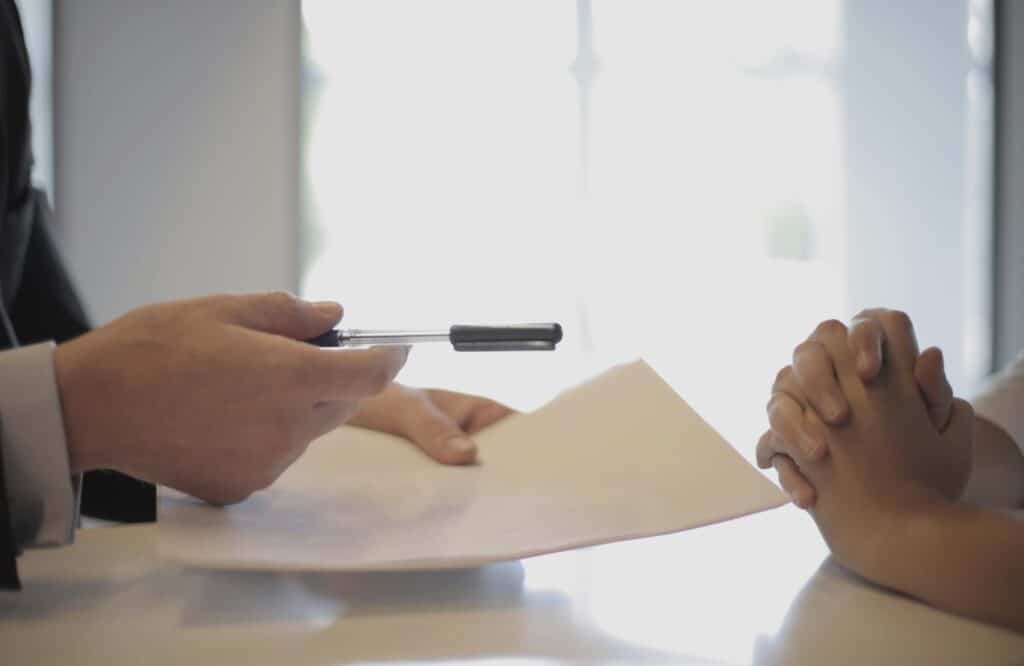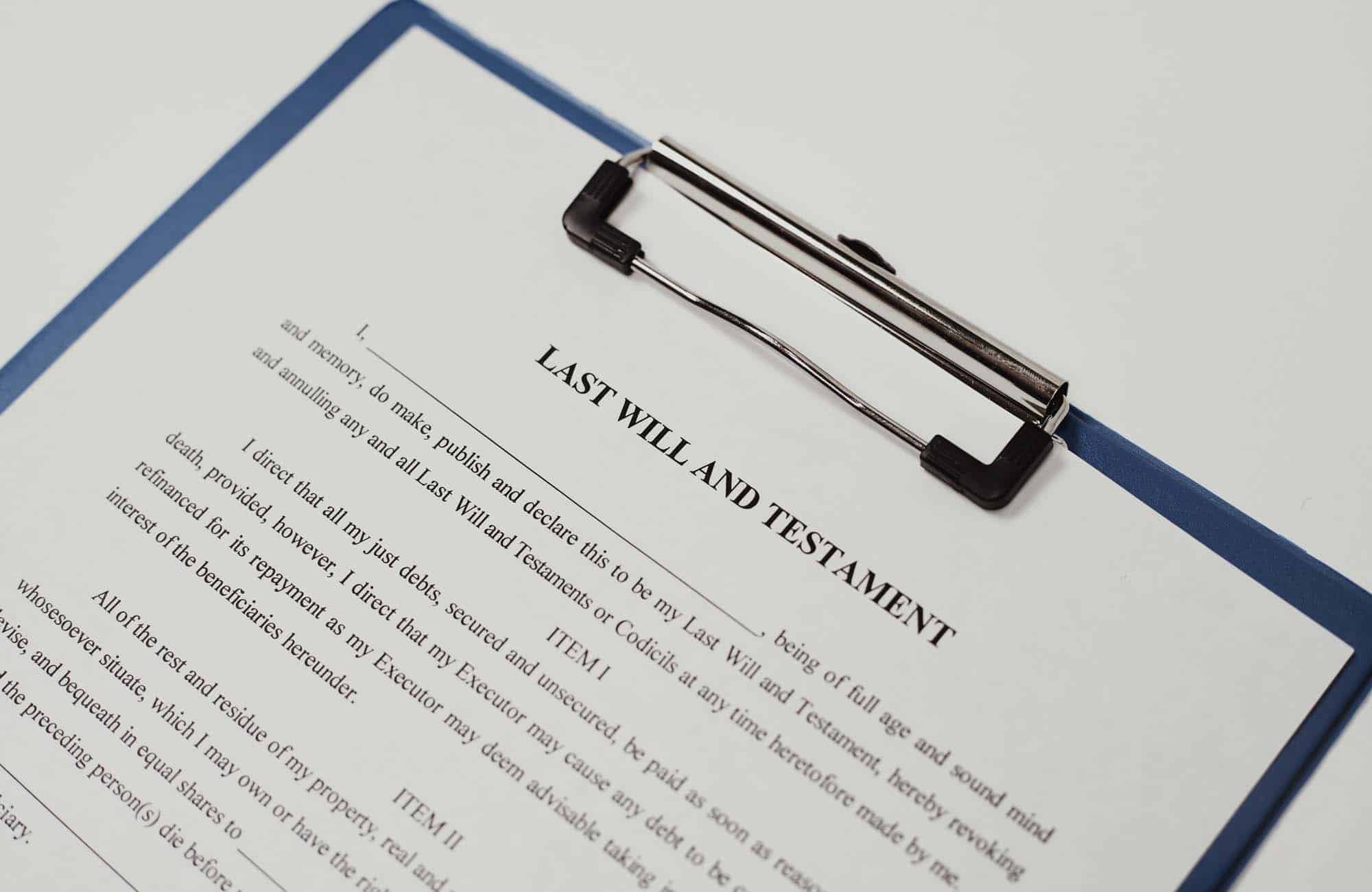If so, it is normal that you have doubts when wanting to make a will. But, this question may have different answers depending on the situation of the testator, who is the person who writes it
Many of my clients have asked me for help to make a will, to prepare it thinking that, if they do not have one, all their properties would go to the State of Florida; and not to their heirs or beneficiaries. This is not the case in most situations.
Under State law there are, what I consider to be very complex, certain laws (statutes) under what is called “The Florida Probate Code”. It is divided into nine parts and covers everything from “intestate successions” (when the person dies without having left his inheritance in writing) or “testated successions” (when the person dies with a Will).
This code controls who is a beneficiary, who is a testator, what is a valid will, what are the processes to follow cases or inheritance legal procedures when someone perishes (with or without it); how to distribute property and debts of the person who has died (man or woman who dies), and other specific things. You can see this regulation in the internet link of:
hthttp://www.leg.state.fl.us/statutes/index.cfm?App_mode=Display_Statute&URL=0700-0799/0732/0732ContentsIndex.html
It would be impossible in this article to cover everything, specifically in this Florida regulation. It is very extensive and complex. Also, the Florida Supreme Court has issued procedural rules to follow in Probate courts. This is, therefore, in many cases, with or without expressing the legacy, they end up in said state courts for a resolution. You can see these rules of inheritance process in the following internet link:
https://www-media.floridabar.org/uploads/2020/01/Probate-Rules-01-01-20.pdf
Successions without a will?
If someone dies without this document, the deceased’s property does not automatically pass to the State of Florida (as many people mistakenly believe). The part of the Florida Succession Code about “intestate successions” (or transfer of property to the heirs of the deceased without a will) is regulated by Part I of the Florida Probate Code, which you can see at:
http://www.leg.state.fl.us/statutes/index.cfm?App_mode=Display_Statute&Search_String=&URL=0700-0799/0732/0732PARTIContentsIndex.html
However, some persons at times want to change what Florida law says about “intestate successions”. For instance, someone may wish to leave everything they own to the Red Cross (in the event of their death), rather than to the adult children. In any event, with or without a document, there are protections under the aforementioned code, for the wife and/or minor children of the testator; and, therefore, said protections require to be reviewed by whoever makes the writing expressing his or her last wishes with a lawyer; before the event of his/her death.
Also, how properties are entitled during the testator’s life must be reviewed, if the testator’s house (or the same) is the main residence he has (called a “homestead”), under the law of the State or not, plus other variables can affect the content and effectiveness of the legal document where they express their legacy.
You can find that specific information below:

How and who can make a valid will?
In an explanation (although quite simple), it is notable to say that whoever prepares or makes the will must comply with the following in order to write the writing:
- Be very well mentally (for instance, if you have Alzheimer’s disease and do not realize what he or she is doing, you would not be qualified to do it),
- Be over 18 years of age or be emancipated, by a valid court order or sentence of a Florida Court or other state or country,
- The will cannot be oral, must be in writing,
- The testator or testatrix must sign at the end of the document or, if the testator or testatrix cannot sign the Will due to any reason (for example: a physical disability which does not allow him or her to sign, etc.) then the name of the person who makes the writing, must be subscribed at the end of the Will by another person, but in the presence of the testator or testatrix and under his direction; and
- The Will must be signed by two witnesses. They must sign the Will in the presence of the testator or testatrix and in each other’s presence of each one (that is, the witnesses and the testator or testatrix) are obliged to sign with the assistance of one and the other; never separately). One cannot place his signature and then the other in the next hour or day, the other witness comes to do it. The will is not declared invalid if a person, signing as a witness, has an economic interest in the properties of the person leaving the legacy; but it is not advisable.
What to do when the testator dies?
Many believe (as they have seen on television or in movies) that, once the testator or testatrix dies, a lawyer gathers everyone in a room and “reads the will” to them; reflecting who is the beneficiary and / or heir and how much they would be receiving. This, is very far from reality in the State of Florida.
Once this person dies, the subject in possession and custody of the original or copy will have ten (10) days to register it with the Clerk of Court for the Circuit Court where the testator or testatrix was domiciled or in the Circuit Court which has “venue” over the deceased’s properties which then are called the “estate”.
There is a process for the Clerk to follow, as well as for the person who has custody and/or possession of the Will. This process can be found in the Florida Succession Code under statute 732.901, which you can find at:
Once the Will is registered with the Clerk of Circuit Court, a case in court called a “Probate Administration” must be opened. This involves, unfortunately in many cases, the forced use of an attorney by the person opening it.
This is basically a lawsuit which is opened in court to administer the Will, pay the deceased’s creditors, distribute the properties according to the inheritance document, prepare inventories, prepare notifications to interested parties, accounting, etc. a process that, due to its complexity, cannot be explained here, but which you can find in the Florida Probate Court which I mentioned before.
Rely on a specialist to make a will
If you think you require a will, before you prepare one, spend money and time doing it, not knowing whether you need it or not, please contact a confident and experienced attorney for a consultation. It would be an honor for me to be able to guide you in the preparation of a Will, if needed, or in processing a Probate Administration case if needed.
Contact us at:
Law Office of Alejandro R. Lopez, P.A. 4465 Edgewater Dr.,
Suite A Orlando, Fla. 32804 Ph.: (407) 649-1404.
Or by our E-mail: [email protected]

